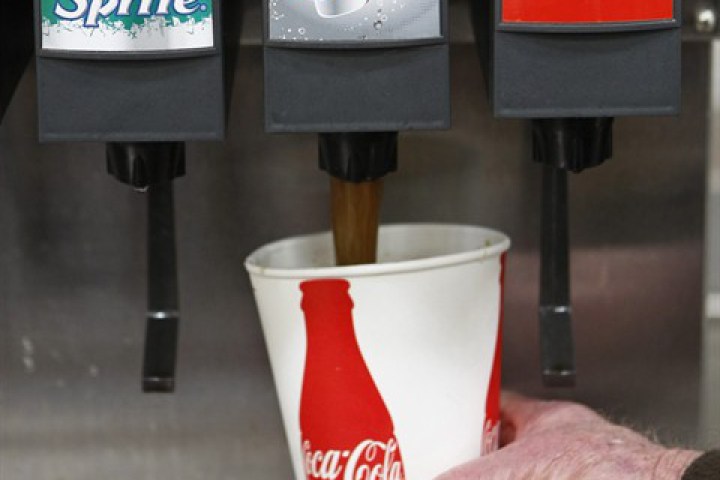Would a 20 per cent tax on your fruit juice or soda scare you away from buying sugary drinks? The British Medical Association suggests an extra tax on soda could help consumers break their bad habit – the cash made on this hefty tax would then be used to subsidize healthy food options.

The idea of slapping heavy taxes on sugary drinks, fast food and processed goods is gaining traction. This time around, British doctors say that it would even out the playing field – prices for fruits and vegetables have climbed by more than 30 per cent in the past few decades, making sugar-laden drinks cheap options.
READ MORE: Fat tax would have to be hefty to work, UK research suggests
“We know from experience in other countries that taxation on unhealthy food and drinks can improve health outcomes, and the strongest evidence of effectiveness is for a tax on sugar-sweetened beverages,” Sheila Hollins, chair of the BMA Board of Science, said.
“If a tax of at least 20 per cent is introduced, it could be expected to reduce the prevalence of obesity in the U.K. by around 180,000,” Hollins estimated.
The latest policy proposal came out of the BMA’s report published Tuesday. It looks at how British health officials could encourage kids to eat healthier while they’re bombarded by fast food marketing.
READ MORE: Bottoms up? Court weighs reinstating NYC ban on big sugary drinks
It points out that a similar measure in Mexico that forced consumers to pay more tax for sugary drinks helped in cutting consumption. That move was implemented in January 2014 – by December, sales dropped by 12 per cent compared to the same time the year before.
California and New York also paved the way for banning big sugary drinks. In 2012, for example, New York City officials banned sugary drinks that were larger than 16 ounces at restaurants, delis, movie theatres, stadiums and street carts.
In 2012, Oxford University scientists suggested that a fat tax on junk food, fast food and soda, would work – but only if the tax was substantial. The tax had to be at least 20 per cent, otherwise consumers wouldn’t be turned off, they warned.
READ MORE: Why diet soda may be making you eat more
The article notes that Denmark was the first out of the gate to enforce a “fat tax.” Hungary has a “junk food tax” and France throws additional taxes on all sweetened drinks.
For its part, the U.K. Food and Drink Federation said the proposals may not work.
“We share the BMA’s concerns about the health of young people in the U.K. … Where additional taxes have been introduced, they’ve not proven effective at driving long-term, lasting change to diets,” Ian Wright, director-general of the organization, told the BBC.
“In recent years, calories in household foods and drinks have been gradually lowered through recipe reformulations, including sugar reductions and changes to portion sizes,” he said.
Read the full BMA report and its proposals here.
carmen.chai@globalnews.ca
Follow @Carmen_Chai
- Buzz kill? Gen Z less interested in coffee than older Canadians, survey shows
- ‘She gets to be 10’: Ontario child’s heart donated to girl the same age
- Bird flu risk to humans an ‘enormous concern,’ WHO says. Here’s what to know
- Naloxone-resistant street drug linked to 9 deaths in Eastern Canada seized in Alberta




Comments